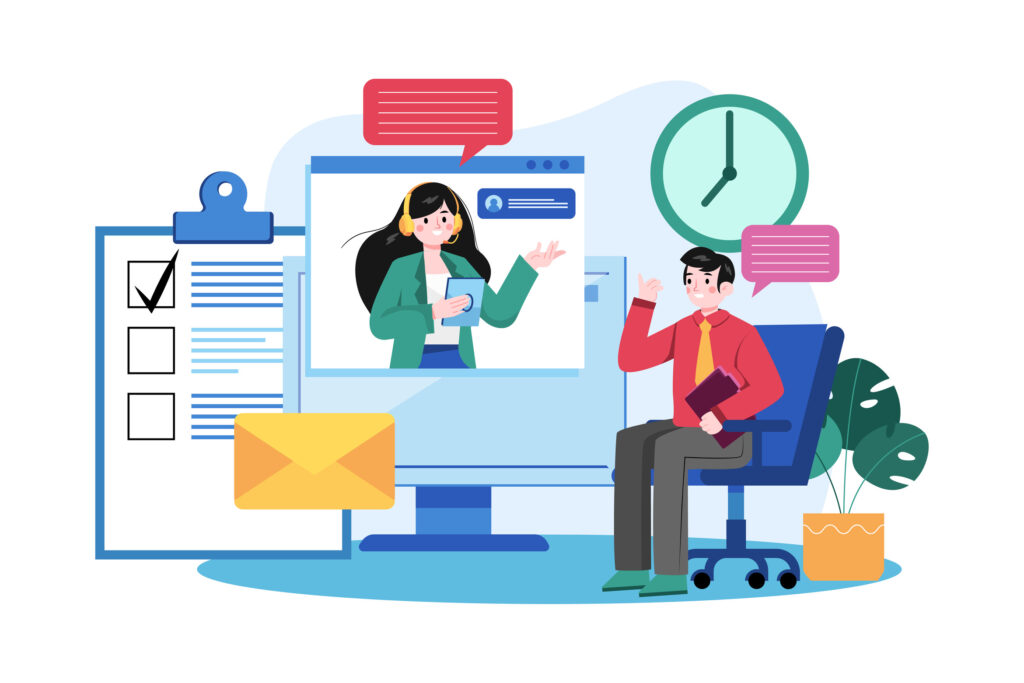
How gamification is helping recruiters attract and engage new employees
Standard recruitment practices and typical job interviews yield only limited and favourable results for the company. Cliche questions and tests are not completely effective in assessing a candidate’s potential because most candidates are aware of them and come prepared with expected answers for such interviews. While job interviews are necessary to illustrate the skills and qualifications of the candidate, the modern recruitment process should evolve with time. It should stay in sync with the trends in online assessment and make use of available tools, such as enterprise-level video interview software, coding potential assessment tools, etc. In today’s immensely competitive marketplace, gamification can be a differentiator for the company and a game changer for human resources.
Gamification in recruitment is introducing a game-like experience as part of an organisation’s recruitment process. The aim is to engage the applicants digitally and motivate them to accomplish goals to reach targets virtually. Experts opine that gamification is effective in increasing candidates’ interest in a job. Here, the applicants are players who virtually perform the tasks that the job at hand requires. It can make the hiring process more interactive, interesting and fun, thus attracting more candidates. Gamification is most useful as an assessment tool in the recruitment process.
During the applicant screening test, games can help identify candidates’ potential in terms of creativity, problem-solving abilities, domain knowledge and so on. Gamification helps recruiters get additional insights about the applicants, leading to a pool of high-quality potential candidates for the role. Moreover, it creates multiple touch points to interact with candidates and cements the perception of a progressive employer. Essentially, gamification can provide a thorough screening even before candidates apply to the company.
Using gamification in recruitment
Hiring teams today understand that gamification can be highly effective in identifying candidates, particularly millennials and Gen Z candidates who thrive on smartphones, virtual reality games, and social media. Read on to learn some ways to apply gamification to your recruitment process:
- Employee referrals can be gamified to motivate current employees to advertise vacant positions in their networks and on social media. It works much like an in-house referral programme albeit to a much wider audience.
- Games can replace generic application forms to screen candidates. Instead of asking applicants to upload their resume and a covering letter, a set of qualifying questions in the form of a quiz, puzzle or game would make the process enjoyable.
- Quizzes are engaging and remarkably effective in understanding a candidate’s competencies while making them exciting and relevant for those applying.
- Leaderboards and dashboards allow recruiters to track the progress of candidates, recognise high performers and create a sense of competition between candidates. Pre-defined goals and scoring sheets will help to easily identify the best candidates.
- Real-time progress charts allow candidates to see where they stand on the recruitment journey and keep them deeply engaged and enthused to reach the final stage or win the competition.
Gain optimum advantage through gamification
Gamification helps recruiters look beyond the old hiring process and seek creative ways to match candidates with jobs. By inviting candidates to work to solve a puzzle or achieve a goal, recruiters have the opportunity to assess their talent, skills and problem-solving abilities more accurately.
For one, it simplifies and effectuates the evaluation process. Depending on resumes solely to identify talent could lead to unwittingly rejecting candidates who might have high potential. So, asking them to play a game can assist recruiters to accurately identify skills and abilities early on. Secondly, it showcases the level of motivation and helps with automatic screening of the ones most suitable. This is because competing candidates are clearly the most motivated job seekers. Gaming requires commitment and concentrated effort; therefore, candidates who are less interested might opt out, leaving a smaller but interested and relevant pool of applicants.
Gamification in recruiting makes the hiring process much more interactive. It also projects the company’s culture as progressive, interesting and enjoyable, thus attracting quality candidates if the right games are chosen to assess the essential skills. You must ensure that the games are rightly correlated with the skills that they need to assess. Candidates can demonstrate their actual competencies and creativity through games. This approach allows candidates with different experience yet transferable skills to apply for new roles and highlight their ability to adapt. It increases the diversity of hiring, with recruiters not being limited to selecting only candidates with relevant experience. It includes those who are making a career switch or industry change, allowing you to screen candidates more objectively.
Another key advantage is reduced hiring time. While tests or assignments take many days for candidates to complete, games only take minutes. The results are instantaneous, automatic and accurate. Reduced time to hire is a major advantage of using games in the initial application phase. It’s a fun way for recruiters to quickly shortlist candidates. Gaming in recruitment could complement or even replace the initial assessment stage. To learn more, see HirePro’s online assessments.
Pick and choose your partner carefully
The success of your implementation of gaming for recruitment depends heavily on your vendor partners. Beyond their ease of use and entertainment quotient, the games you deploy for the recruitment process have to be relevant to the role to help you pick the best talent. If not, it could be a drain on resources and mar the recruitment objective. Games must be developed and implemented through extensive research and based on behavioural science. Therefore, it is wise to look out for companies that specialise in recruitment gamification. You can evaluate vendors or partners on the basis of the following list of questions:
- Is there substantial research behind their games?
- Does the vendor or partner constantly work on improving the company’s products based on new data, insights and approaches?
- How advanced is the company’s understanding of the recruitment industry?
- Can it truly align with your approach and deliver the maximum return on investment?
- How advanced is the company’s technology? Is it adaptable to your requirements?
- How engaging and effective is their gaming content?
Human resources must also take into account the partner’s strategy and scrutinise promised deliverables and results with existing customers. Their pricing and your allocated budget will also be defining factors, in addition to the aforementioned criteria.
Conclusion
To sum it up, gamification allows your entire recruitment process to become interactive, in-depth and engaging, without the complexity or tedium. It enables recruiters to use the various available platforms and channels right from online tools to social media to assess candidate calibre, skills, cultural fit and behaviour accurately. It ensures that the most suitable applicants are matched with the roles and aligned with the organisational culture and requirements. While the need for gamifying recruitment is indeed compelling, you do not need to build or develop a gamified recruitment process from scratch. Ready-to-deploy tools like HirePro’s can get you started instantly. Let the games begin!
